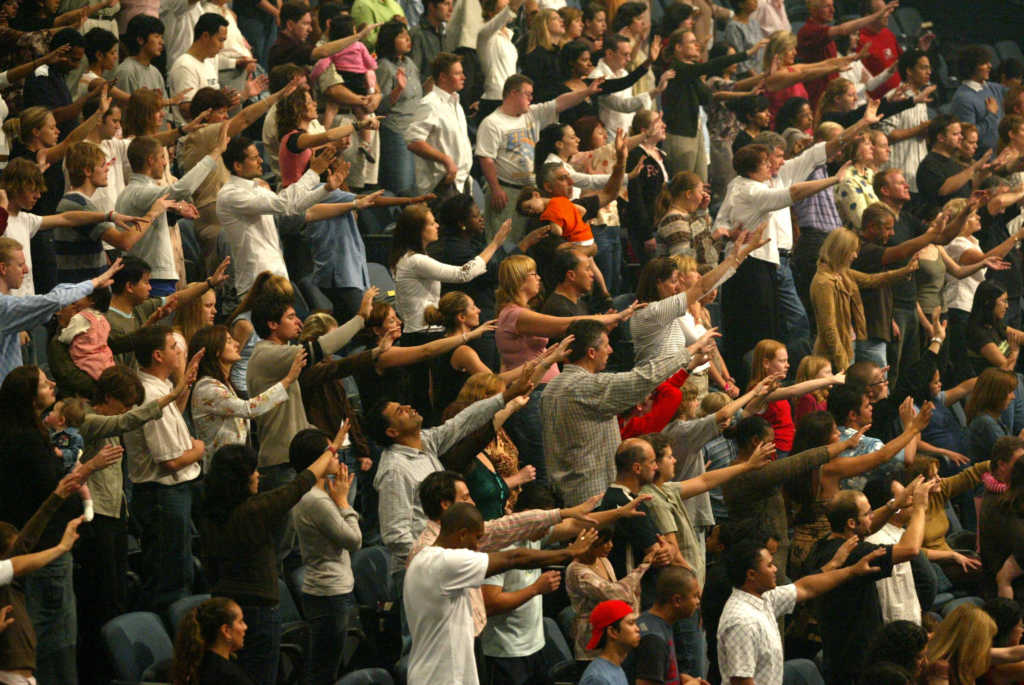Academics who set out to explore the potential impact President Donald Trump’s election has had on church attendance came away with some fascinating findings. Among them: evangelicals who liked Trump but assumed their church wasn’t supportive enough of the candidate were more likely to leave their house of worship than those who didn’t like Trump and assumed their clergy did.
Researchers Paul A. Djupe, Jacob R. Neiheisel and Anand E. Sokhey asked evangelicals before the election to explain their level of support for President Donald Trump as well as their perception of their pastor’s support for Trump, and the results were intriguing, according to a blog post previewing the findings, which will be published in the American Journal of Political Science.
While much has been made about intense evangelical support for Trump on election day, he only scored an average of 48 on a thermometer rating that went to 100 (this was compared to the lower score of 25 that Hillary Clinton received on the same measure) when respondents were asked about him.
And evangelicals’ level of Trump support was on par with the score of 50 that was yielded when people guessed where clergy stood on the billionaire businessman. From there, Djupe, Neiheisel and Sokhey explained that they used a regression model to try and discover patterns of who was most likely to flee the pews at their church. They explain:
We find that those who perceived disagreement with their congregation over Trump (in September) were the most likely to report leaving their house of worship by November. Those who felt very warmly toward Trump and perceived very little support for Trump from their clergy (red line on the left) were more likely to leave as were those who felt cool toward Trump and perceived considerable support from Trump from their clergy (blue line on the right). The estimates diverge quickly from their convergence in the middle, which suggests that feelings about Trump were quite salient in evangelical congregations. This finding might help us explain why evangelical clergy appear to have had little to say about Trump in their churches this fall – they were sensitive to these possibilities.
You can see a table below that explains these findings as well:

Religion in PublicIn the end, the researchers said around 14 percent of these individuals reported leaving church by the time the election had concluded, including 18 percent of mainline Protestants, 10 percent of evangelicals and 11 percent of Catholics.
According to the Christian Post, the researchers came to their results after interviewing 957 people from across the U.S. who were part of a larger sample from a September survey of 2,500 people.
Djupe, Neiheisel and Sokhey also sought to push back against certain aspects of a popular narrative: that the Christian right’s attachment to the Republican Party pushed liberals away from faith.
The academics behind the research contend that it “makes little sense that political liberals would leave religiously liberal churches – where a large portion of ‘nones’ come from – because of a conservative political movement.” If this were true, they said it would be like “breaking up with your boyfriend because Casey Affleck is behaving badly.”
In the end, they argue that both conservatives and liberals simply leave churches that they feel fall too much on the opposing ideological side, something that is shared by people on both sides of the aisle and is a normal organizational happening.
Read more about the findings here.
—
Other Must-Read Stories:
– ‘God Had a Miracle’: Michael Bublé’s Wife Breaks Silence on Son’s Cancer Battle
– The Key Detail in Jesus’ Resurrection Story That Should Convince Even the Biggest Skeptics



